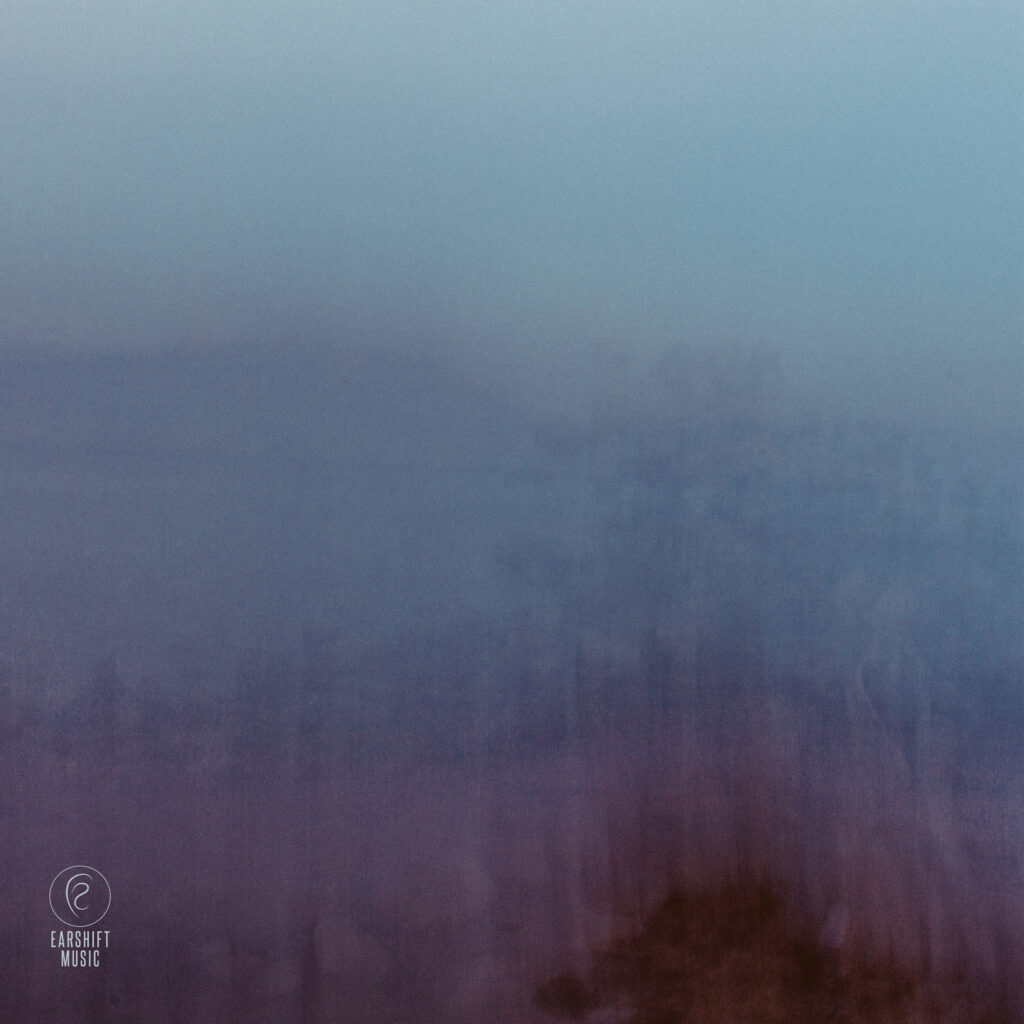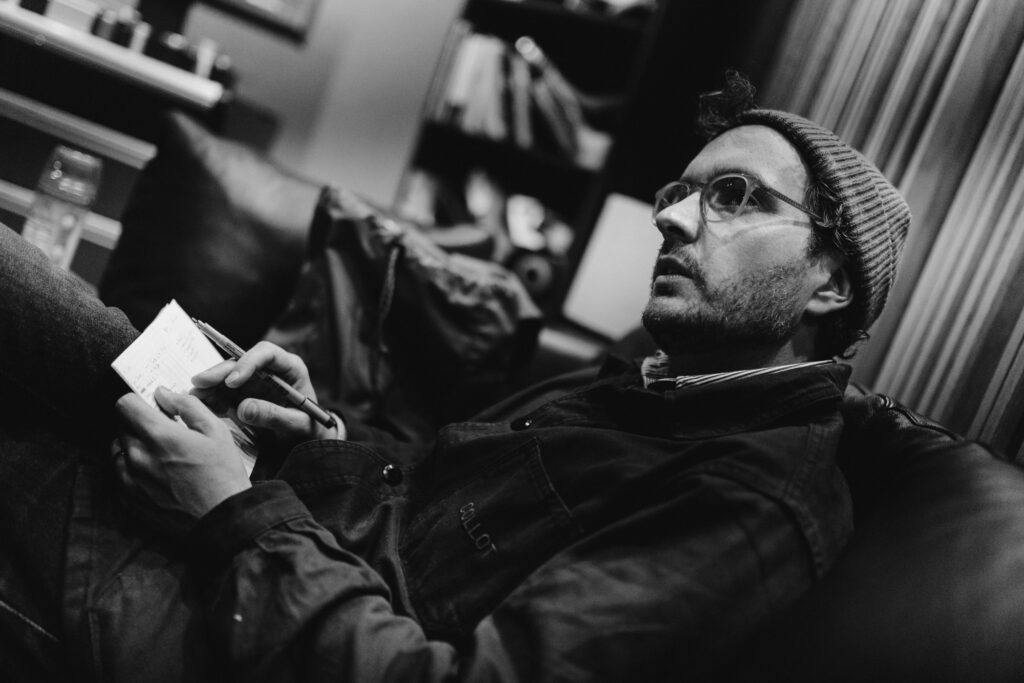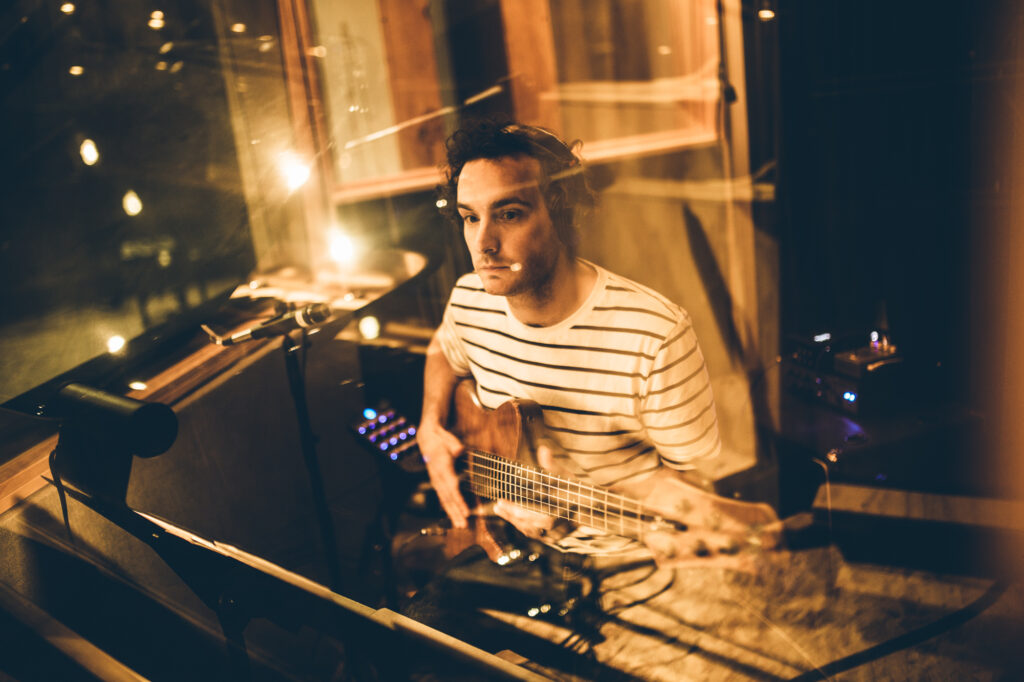
Multi-award winning Australian bassist and composer Ross McHenry’s fifth album ‘Waves’ was released on September 13th on Earshift Music. It features an amazing ensemble of top notch musicians who do an amazing job capturing the vibe of McHenry’s vision.
McHenry describes it as:
Waves is a sketch of a moment in time. It is about experiences from the past and the way they meet experiences in the present. The way things become intertwined and related, and the way experience is at once about what is at hand and simultaneously about all that has already been.
Throughout the seven tracks which span almost 57 minutes, there is so much energy and communication within the ensemble… it is contagious.
Opening the record is the title track Waves which sets the mood for the musical explorations that follow. Pianist Matthew Sheens shines on this track in particular with his rhythmic playing driving the flow of the piece.
The second track, In Landscape begins with an almost Brad Mehldau textural intensity coupled with tasteful lyrical bass playing from McHenry. This is also our first time the trio of Donny McCaslin (Tenor Saxophone), Adam O’Farrill (Trumpet) and Ben Monder (Guitar) adding to the hypnotic pulsating conversation going on. Matthew Sheens’s solo on this is brilliant and following that, Donny McCaslin takes a is both rhythmically playful and expressive. We also get an exciting buildup with O’Farrill coming in with counterlines as Eric Harland does fluid dramatic fills building the drama before the theme comes back in. Kudos to McHenry for focusing on creating a really cool composition that sounds larger than the actual ensemble size. Especially towards the end of the piece, when I could hear more of Ben Monder lines, the counterpoint is giving that Maria Schneider kind of large ensemble vibe. I particularly love Monder’s chord swells towards the end as well.
Love and Obscurity takes us into the landscape of track three again by setting the mood before the horns floats over to state the melody in a triumphant manner and almost like a poet sighing at the end of the day. Again, the layers of melody that McHenry has build here is again the kind of thing that implies larger ensemble atmosphere. Matthew Sheens’s solo is again almost feels like it is a perfectly etched sketch of lyrical beauty. O’Farrill follows with his own solo and the interplay between the piano, bass and drums along with the trumpet solo feels so good. It’s interesting to hear Monder’s playing on this as it is often more felt than actually heard. Moving toward the end, Harland builds up the drama with his playing as the horns take centerstage again. In the last 39 seconds, we hear this whispery counterpoint between everyone before a firm solid ending closes the piece.
Moving into July 1986, everything moves slower and we get to hear the first solo from Ben Monder. Monder takes him time building the solo with spacious notes that play in a pointillistic way before O’Farrill takes over. It’s so interesting to hear a real moody solo like this by Monder, I might have to listen to this again and again. With O’Farrill’s solo, there are glimpses of what Monder did as his solo ends and the horns buildup again the piece. The power of the ostinato in the bass is really felt here. Closing the piece, Sheen plays some haunting lines and chords that take so much time to set everything in, giving us a kind of closure.
With Odysseus in Brooklyn, I am attracted to Ross McHenry’s first clear solo on the record. Arguably, one could say that his bass lines are prominently featured throughout the other tracks, but I do love hearing his solo here. There’s some of that Jaco Pastorius feeling and there’s also a lot of tasteful melodicism that builds on the composition rather than go elsewhere. This is the mark of a real composer focused on the beauty of the music, and everyone shines because the compositions unite everyone’s playing. McCaslin takes a solo on this track as well and it’s a nice one that builds on what happens before. The ending of this piece is again open and takes its time to settle in the texture before ending.

North of the River has a nice ECM kind of feel to the piece harmonically, except that it’s more dramatic. The through composed vibe of the piece is also really enjoyable for me… and then there’s Sheens chordal entry into his solo which is just so nice. There’s a sweet balance between his lines, the chordal stabs and the energy of the rhythm section.
Closing the record, 1989 is a fitting piece to bookend this strong collection of compositions. Again I love the layers of melodies that we hear, it’s almost like a cloud of sound. I also love Ben Monder’s chordal textures towards the end of this piece just before the pulsating chords and melodies from Sheens take us out from this musical journey with the last few notes and closing chord.
In conclusion, I have to say that this record is one of the most satisfying listens I’ve had from a compositional perspective in a long time. This might be due to the fact that I love anything so thoughfully arranged, but also perhaps because the ensemble is such a musical unit. This is the first time I’m listening to McHenry’s own records and this album might just make me check out his other albums prior to this. Strongly recommended for fans of beautifully knit, thoughful jazz compositions!
Rating: 5/5
Find out about Ross McHenry’s work and upcoming performances on his website: https://www.rossmchenry.com/
Get his album Waves here: https://rossmchenry.bandcamp.com/album/waves
I received a complimentary copy of this album courtesy of Liam of Jazzfuel. Thank you for the CD.
About Ross McHenry

Dr Ross McHenry is a multi-award-winning bassist and composer whose musical explorations push at the boundaries of contemporary improvised music, chamber music and beyond. Driven by an intuitive sense of collaboration and a fearless approach to experimentalism, Ross has built a global reputation based on significant international collaborations and performances with leading artists and ensembles across Australia and around the world.
Ross has been recognised through major awards including the 2019 APRA AMCOS Art Music Award for Excellence in Jazz, the 2020 APRA AMCOS Art Music State Luminary Award and the 2020 Arts South Australia Ruby Award for Best Work Outside a Festival. Ross has performed at leading arts festivals including Glastonbury, The Sydney Festival, The Adelaide Festival, The Falls Festival, Splendour in the Grass, Wellington International Jazz Festival and the Melbourne International Jazz Festival and leading venues including the Melbourne Recital Centre and Ronnie Scotts. Ross has released five solo albums, is an Australian Music Centre Associate Artist and holds a PhD in jazz composition.
Ross’s practice is underscored by a deep love of the creative possibilities of the recording process. His extensive discography as a bandleader and collaborator showcases an artistic progression that earnestly mirrors his evolution as a composer and artist. Each album is a testament to the possibility of an ever-evolving artistic conversation realised through a deep commitment to the vulnerability and imperfect nature of the artistic process. Driven by a restless and unwavering desire to constantly redefine the possibilities of his own artistic trajectory, Ross continually seeks new collaborations to expand the possibilities of his musical interactions.
Alongside his creative practice, Ross is a dedicated advocate for artistic exploration and a key contributor to the Australian arts sector through leadership roles, as a producer and through research and advocacy. Ross is the current Executive Director of Windmill Theatre Company.